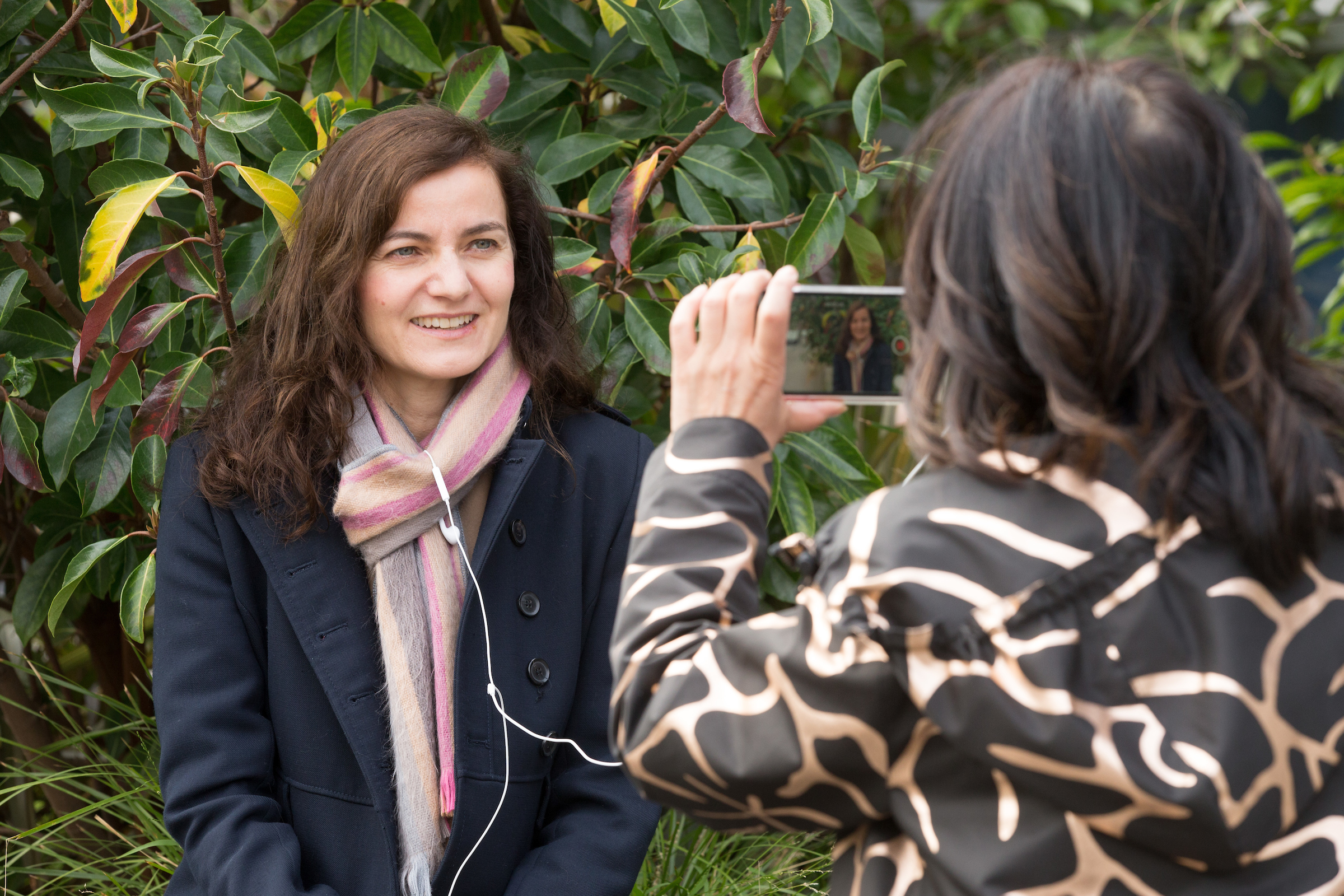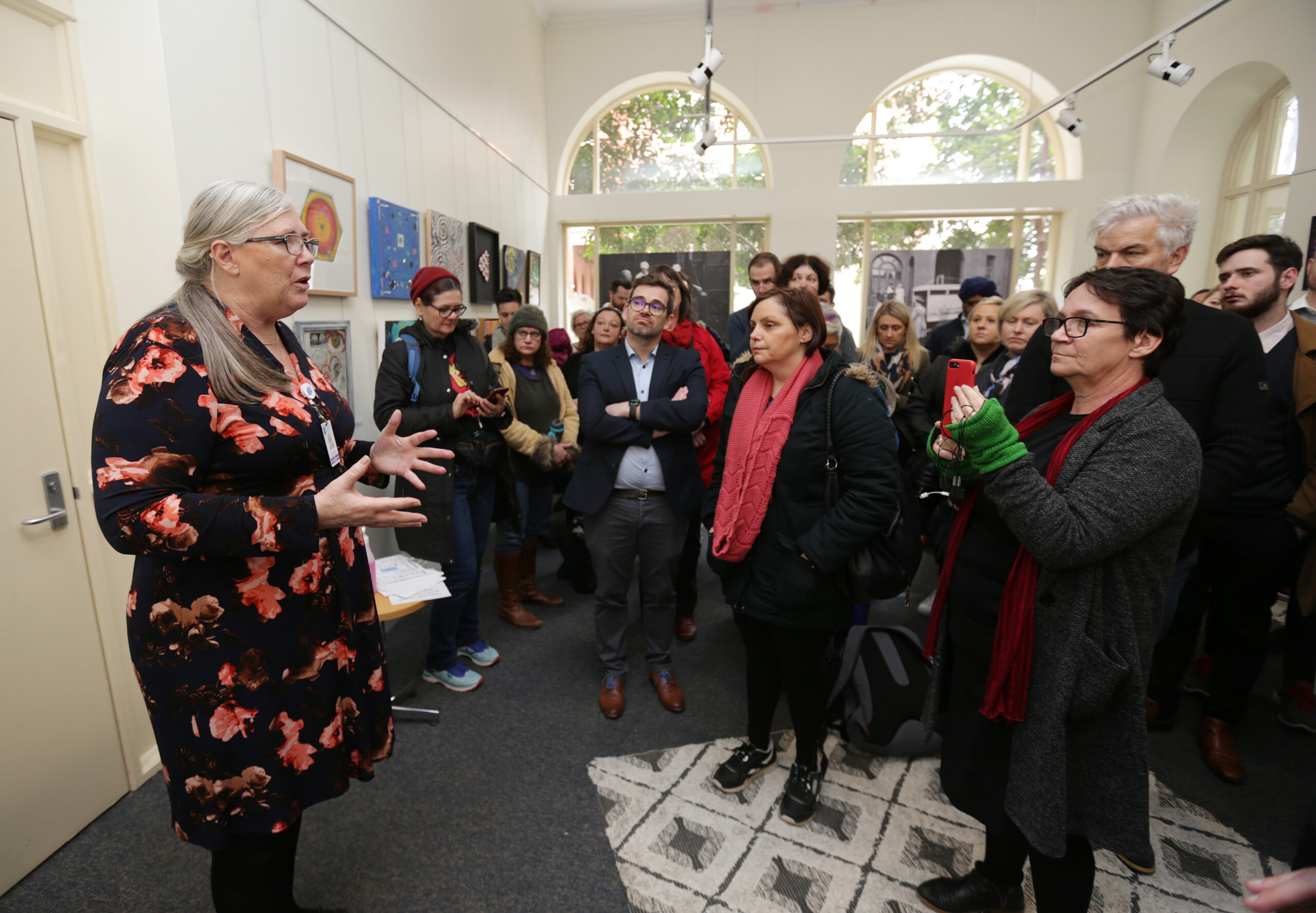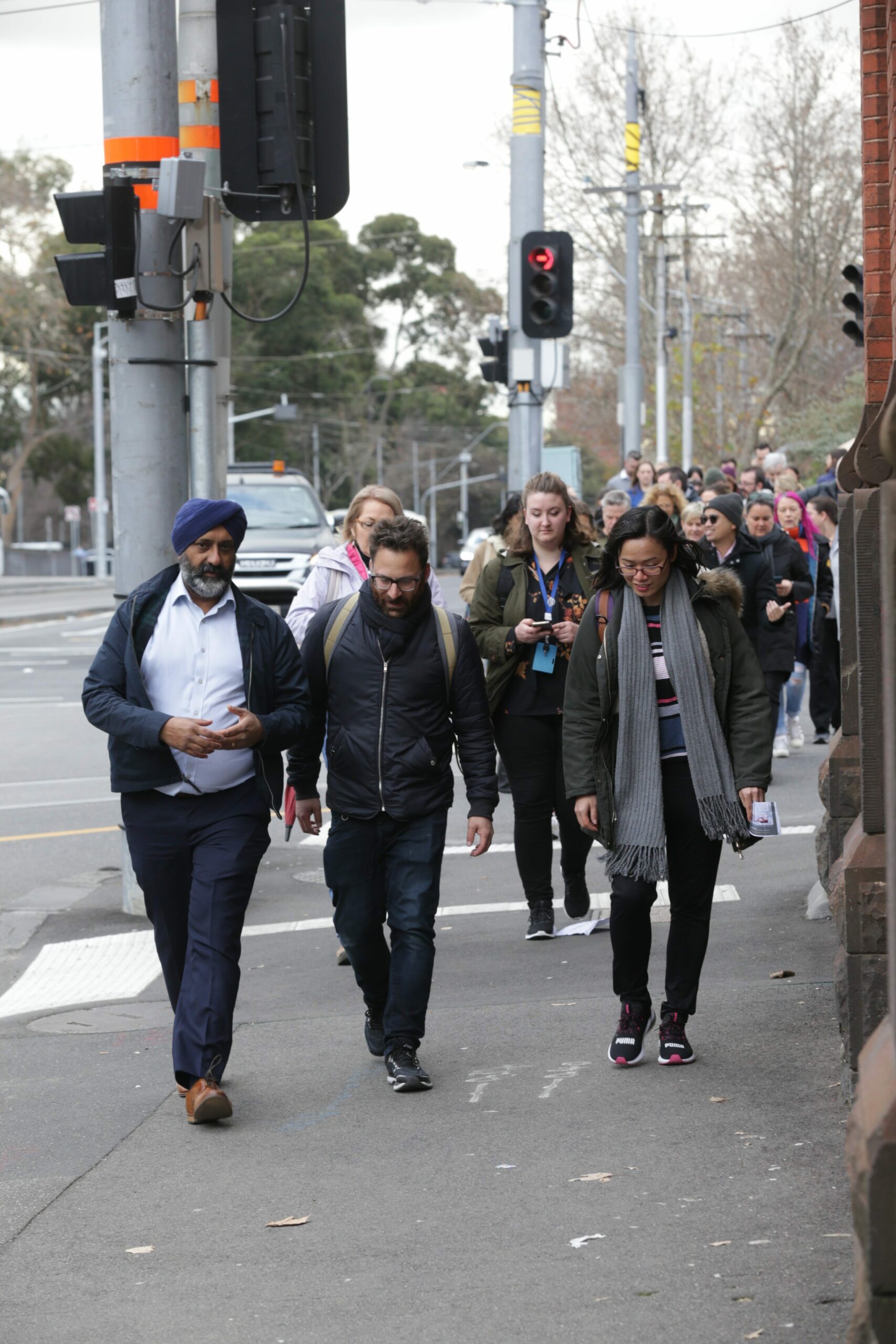

On a cold, wintery morning in early August, health professionals, community members, academics, researchers and consumers came together to walk and talk about how we can improve the mental health and wellbeing of our community.
The walking event, called a CroakeyGO, was organised by NWMPHN in collaboration with Croakey, a public health news project, as another way of listening to and engaging with our community.
Croakey founder Melissa Sweet started the day by explaining the importance of conversing with both consumers and health professionals to ensure we are getting a broad scope of information and opinions.
“CroakeyGO is a disruptive intervention,” Ms Sweet said. “It’s about disrupting the way we do journalism. It’s about disrupting the way we think about health and disrupting the way we work, whether we’re in health or journalism.”
The trek was planned to be representative of a patient’s journey through the health system, with the discussions on the day to directly inform our Regional Plan for Mental Health.
We started the walk at the Victorian Aboriginal Health Service (VAHS) in Fitzroy, hearing from former CEO Alan Brown and Preventative Health Manager Lionel Austin. Both spoke about why Aboriginal and Torres Strait Islander people need culturally safe health services and how they are trying to move towards a good health model, not an illness model.
“The sad reality is, and it’s not just a VAHS thing it’s a general thing in Australia, the only time the mob access their GPs are when they’re sick,” Mr Austin said. “So how do we shift the mindset of the people in our community to utilise our local primary health care provider on a regular basis?”
Fiona Patten, Member of the Legislative Council of Victoria, took time out from her parliamentary duties to attend the walk, driven by a strong interest in public health, especially access to mental health services.
“The growing concerns about access to mental health services, both inner city but also in those new outer suburban areas, is a concern for me,” Ms Patten said. “I’m here to learn what else I can do to advocate for mental health services in my region.”
Next stop was St Vincent’s Hospital, where walkers spent time in the Safe Haven Café, an alternative place for patients to wait instead of sitting in the emergency department all night. The Safe Haven Café has been open for just over 12 months and has already welcomed over 1,200 visitors.
Fran Timmons, Director of nursing, mental health and addiction medicine at St Vincent’s Hospital, explained that the Safe Haven Café opened in order to address social isolation and give people a place to go to feel connected to others.
“We were beginning to think about why people come to our emergency department,” Ms Timmons said. “Because they’re not actually admitting they’ve come because its two o’clock in the morning and they’re feeling lonely, haven’t spoken to anyone in two days and feel so desperate that they’d rather jump off the balcony than stay in their flat.
“They don’t say that. Instead they’ll come and say they’ve got a headache.”
NWMPHN CEO Adjunct Associate Professor Chris Carter said innovations like the Safe Haven Café and the PHN’s social prescribing and social connectedness programs reflect growing evidence that increasing or re-establishing connection with family, friends and community plays a critical role in good mental health.
At our third stop, drummond street services, CEO Karen Field talked about how NWMPHN’s support of a holistic approach to mental health funding was critical to providing culturally safe services for refugee and LGBTIQ communities and other vulnerable groups.
“Our experience with government funding is it’s very single issue,” Ms Field said. “It’s your mental health, it’s your drug and alcohol and so on. When you’re a service provider you don’t get to do [just] that… Through the [PHN’s] commissioning process, it allows us to actually talk to them about what we’re noticing, what our service data is showing. So when I think about the funding the PHN has given us, it closes so many of those gaps.”

Our final stop was Carlton Family Medical Centre, where General Practitioner Ralph Audehm spoke about the problems his patients, including students, have accessing and navigating the mental health system.
“Students seem to be under more and more pressure every year and we see a lot of students presenting with mental health issues, depression, stress and anxiety. Often when they’re overseas students they don’t have a support network over here and so they really don’t know what to do,” Dr Audehm said.
Dr Audehm said the system worked relatively well if someone was acutely ill, but there was a big group of people needing mental health services who weren’t “sick enough” to get admitted and who couldn’t afford to pay for private mental health services. He also provided examples of when the mental health system worked, highlighting one patient who was provided ‘wrap around care’ and tracked over 18 months to make sure her recovery lasted.
The day was a great success for our organisation, allowing us to tap into the positive and negative experiences of community members and health professionals in a way that wouldn’t have otherwise been possible. The next step is to use this information to inform our Regional Plan for Mental Health for the 1.7 million people in our catchment.
A/Prof Carter said hearing people’s stories and deeply engaging with people and the services on the ground was energising.
“I loved the fantastic, rich stories we got not only from the speakers but from the participants. My hope is to develop a much more robust model of care that doesn’t just focus on people’s mental health or mental ill health but actually focuses on them as a whole person.’’
See the stories and videos from the day at nwmphn.org.au/croakeygo




